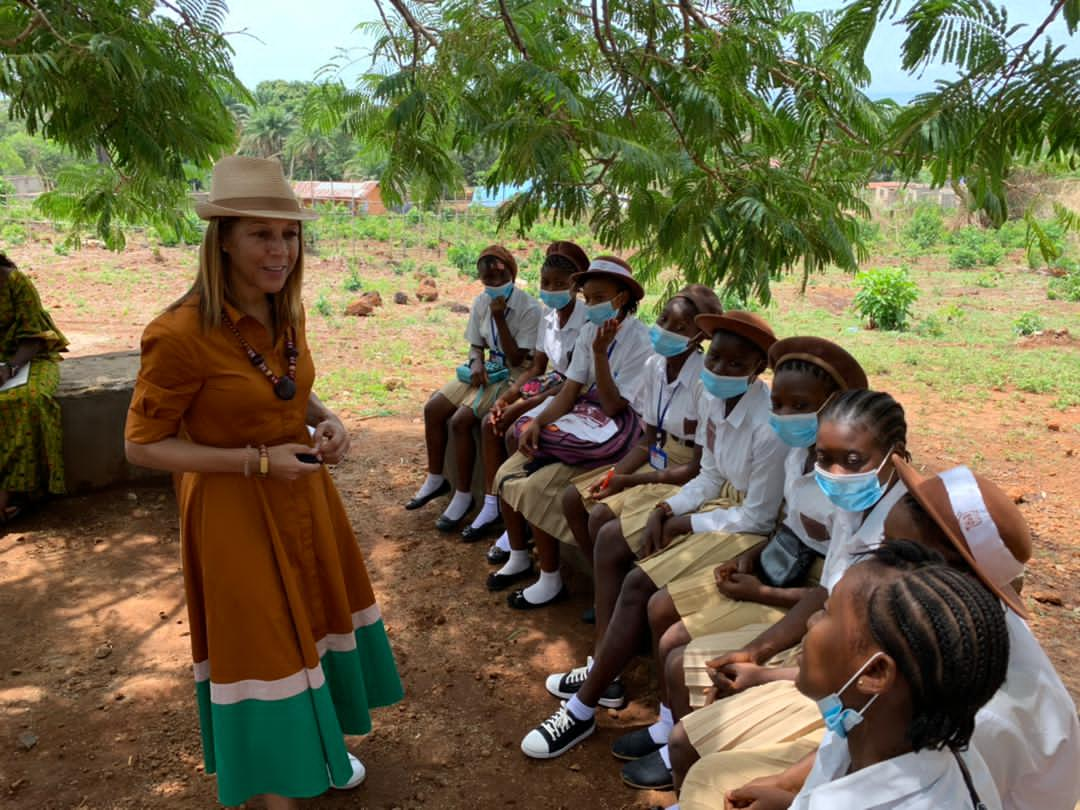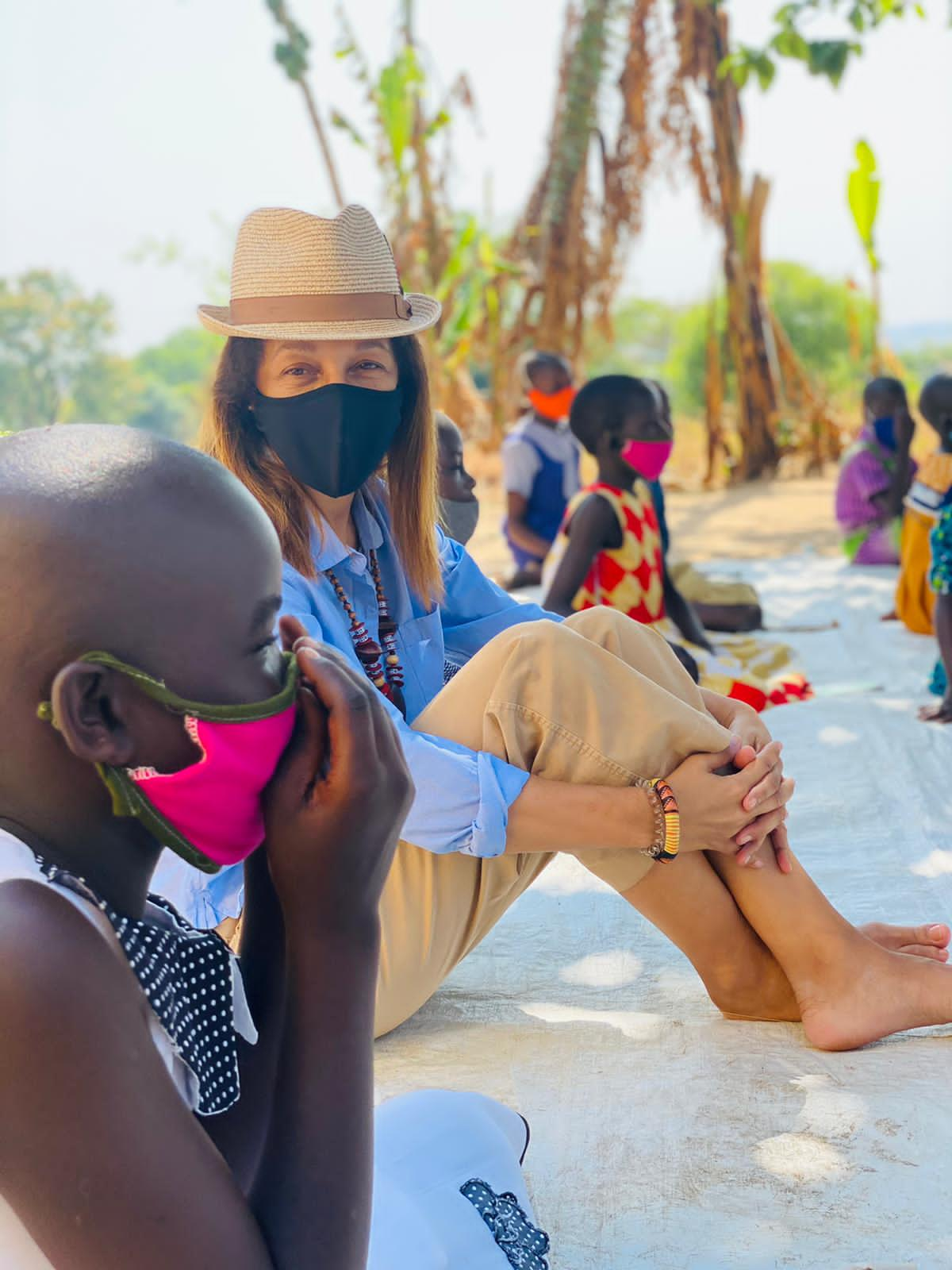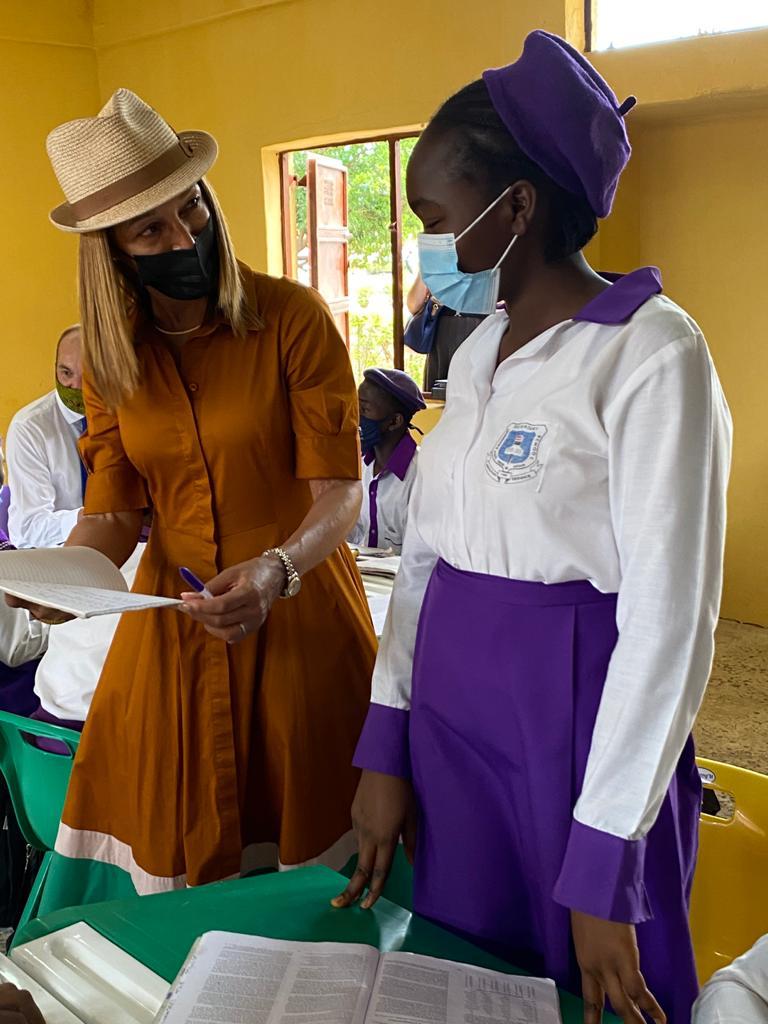Helen Grant MP: 'Educating all girls everywhere is one of the smartest investments we can make'
As G7 leaders met to discuss global targets on girls' education this week, the UK pledged to increase their support to the Global Partnership for Education and announced a commitment of £430 million. Helen Grant, MP and Prime Minister's Special Envoy for Girls Education, writes exclusively for Marie Claire about the pledge and the need to boost girls’ access to education.

As G7 leaders met to discuss global targets on girls' education this week, the UK pledged to increase their support to the Global Partnership for Education and announced a commitment of £430 million. Helen Grant, MP and Prime Minister's Special Envoy for Girls Education, writes exclusively for Marie Claire about the pledge and the need to boost girls’ access to education.
Words by Helen Grant, MP for Maidstone and The Weald
When I was a girl, there was one day at school that changed my life forever.
I was seven years old and my friends and I were having a running race on the school playing field. When the teacher saw how quickly I could run, she called me over and said: “Helen, we’d better buy a stopwatch, and we’ll start training you for the Olympics.”
She actually bought the watch. And I actually believed her.
Although, sadly, I didn’t make it to the Olympics, the belief that my teacher showed in me had a huge impact on my self-confidence and self-esteem, motivating me not just in my sports but in my academic work too.
That experience has always stayed with me. It reminds me that while school is for learning, it’s also about inspiration, teamwork and friendship, developing all those skills that allow young people to go on in life, get jobs, and reach their potential.
Celebrity news, beauty, fashion advice, and fascinating features, delivered straight to your inbox!
It is a tragic fact that the Covid-19 pandemic has been one of the biggest disruptors of education around the world in history, forcing 1.6 billion children and youth out of school at its peak and exacerbating the existing learning crisis.
Girls living in developing countries have been disproportionately affected, put at a greater risk of gender-based violence, child marriage and female genital mutilation. We are now facing a lost generation of girls who may never start or return to school.

My mission is to get these girls into school and learning. Educating all girls everywhere is not just the right thing to do, it is one of the smartest investments we can make to lift people out of poverty, grow economies, save lives, and build back better from Covid-19. A child whose mother can read is 50% more likely to live beyond the age of 5 years, and twice as likely to attend school themselves. They are also 50% more likely to be immunised.
This week G7 leaders agreed ambitious global targets to get more girls into school and learning, and pledged to increase their support to the Global Partnership for Education (GPE) in time for the Global Education Summit, being co-hosted by the UK and Kenya in July. The UK announced a commitment of £430 million. This is the largest pledge the UK has ever made to GPE - an increase of 15% from our previous annual pledge – testament to the UK’s commitment to this game-changing issue.
From my recent visits to Uganda, Nigeria, Ghana and Sierra Leone, I’ve seen the barriers girls face to education – be it the lack of proper facilities stopping girls who are menstruating going to school as they are unable to wash, heavy rain causing flooding in schools, rendering them too dangerous, or young mothers forced to abandon their education to look after their children.
I’ve been privileged to meet so many children and young people, all eager to learn and flourish. From the hills of Aburi in Ghana to the Western Area of Sierra Leone, I’ve spoken to girls and young women about what an education means to them, their families and their communities. It means a whole lot more than just passing an exam. It is about providing the foundation for a better future. Girls and young women told me they wanted to be teachers, lawyers, engineers, doctors, bank managers and even politicians. We must not allow these girls to miss out on these opportunities.

Nelson Mandela said, “Education is the most powerful weapon which you can use to change the world” and he was right.
This is why the UK is partnering with Kenya to host the landmark Global Education Summit in London next month. Bringing together international leaders, business, civil society and international organisations to raise vital funds to help achieve the UK’s ambitious goals of getting 40 million more girls in school, and 20 million more girls reading by age 10, or at the end of primary school, in low- and middle-income countries by 2026. The Global Education Summit is an important milestone in this ambition, but we need all countries to step up and match the UK’s leadership if we are to achieve these goals.
The Covid-19 pandemic has shown us how interconnected we all are. Girls’ education is no different. It matters to us all. By boosting girls’ access to education, together, we will turbocharge a better, safer, healthier world for everyone.
The leading destination for fashion, beauty, shopping and finger-on-the-pulse views on the latest issues. Marie Claire's travel content helps you delight in discovering new destinations around the globe, offering a unique – and sometimes unchartered – travel experience. From new hotel openings to the destinations tipped to take over our travel calendars, this iconic name has it covered.